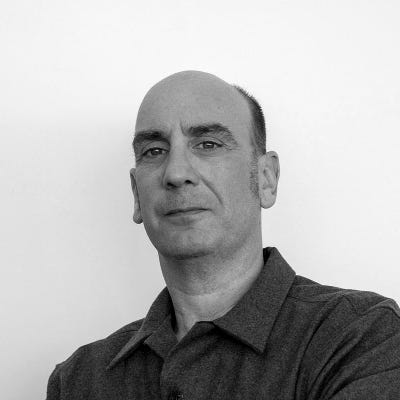New ‘Powered by Kaseya’ Branding Initiative Aims to Double MSP EBITDA
Kaseya CEO Fred Voccola shared that news and other insights at the Channel Futures Leadership Summit.
November 1, 2023

CHANNEL FUTURES LEADERSHIP SUMMIT — Kaseya will be launching a companywide branding campaign – Powered by Kaseya – that could double the EBITDA and lower the cost of goods sold (COGS) by 20-25% for MSPs that sign on for the program. This news came from Kaseya CEO Fred Voccola (pictured above, right, on stage with Informa Tech’s Bob DeMarzo) during "The Future of the Channel: A One-on-One with Kaseya CEO Fred Voccola" session in front of a packed room at the Channel Futures Leadership Summit in Miami Beach on Wednesday.
“You will have a monster competitive advantage over anyone that is not ‘Powered by Kaseya,’” Voccola said, without providing details. Those will be rolled out at the Kaseya Connect Global 2024 conference in Las Vegas next April. “That will disrupt the entire industry and that's why end customers are going to start to look for MSPs powered by Kaseya, the same way that we bought a PC 15 years ago powered by Intel Inside. We're going to make it financially impossible for people not to be ‘Powered by Kaseya.’ That's our objective because the better this industry grows, the better we grow.”
In a conversation with Bob DeMarzo, vice president of content for Informa Tech Channels, Voccola said Kaseya has been working on the branding initiative for more than nine years. The company has been building and acquiring products that integrate into its IT Complete comprehensive suite of products that are designed to help MSPs serving the SMB run all of their IT operations as efficiently as possible and deliver to customers the products they need.
Powered by Kaseya: 'The Best Opportunity to Be Successful'
��“’Powered by Kaseya’ should mean you have the best opportunity to be successful as a service provider in whatever market you're in,” Voccola said.
That statement aligns with Voccola’s belief that Kaseya will be one of the “top five or six most vital software companies by the end of the decade.
“What we try to do is to have a fully integrated platform at half the price, so our partners get a better experience and make a lot more money using our stuff than other stuff,” he said.
Here’s a recap of the conversation, which has been edited for clarity and brevity.
Bob DeMarzo: Talk about your outlook for 2024. You have such great insight into the channel. Who’s going to survive and thrive.
Fred Voccola: The number of MSPs is growing. Whether I'm a three-person company or a Thrive Networks [a very large MSP], as long as I'm running my business as a business and not as a hobby, I think we can survive. But I think if you're a four-person MSP, you have a competitive advantage over someone like a Thrive in a certain market segment because you can give more personalized attention. So, I don't see the end of the small MSPs, I see a proliferation of them. If an MSP, whether a three-person company or a 300-person company, that from a service delivery perspective offers a platform of services that’s holistic falls behind, it risks losing its customer. The risk is for people who are not trying to evolve the breadth of their service delivery offerings. If I have a seven-person architecture firm, I don't care if I'm working with a 5,000-person MSP or the local person with three people. If the MSP can’t do a document recovery that I need for architectural drawings, I can't work with them.
BD: Your $6.3 billion acquisition of Datto closed about 16 months ago. It was one of the biggest deals in the channel and one that had the biggest impact on the MSP space. What’s your assessment of that? Was it successful beyond your imagination, what would you have done differently? You’ve been really aggressive in M&A and this is an audience that's trying to go through M&A as well. Take us through the Datto deal and how your view of that process has changed.
FV: There's one way I think to define M&A success: Meet the financial objectives of the capital (spent). That’s really simple. From that perspective, the deal went incredibly well. We'll do 30% organic growth with $2 billion in revenue and about $700 million in EBITA (in current revenue). But M&A is not easy, it’s hard. We bought a big public company. It’s the first time we did it, so yeah, there was a lot of blood, a lot of fights, a lot of scratching. It was two very different cultures. There are differences for better or for worse. It's tough. In the next deal we do, we’ll learn from the mistakes that were made. But it's been great.
I think the biggest lesson that I learned was ‘lose arrogance.’ I don't care who it is, there's arrogance in every deal: “We bought you so you’re going to do it our way.” Arrogance should be about success, not about other kinds of things. But that happens, that impacts decision-making somewhere by someone at some point in time. “You’re going to do it our way because we bought you.” A lot of our mistakes can be routed back to that. You have to take the time to do due diligence to understand why Kaseya did that something one way and why Datto did it another and look at it neutrally to see what’s really the best for the customer and what’s best for the company.
BD: You’ve been pretty transparent in saying “this is what we did right” and “this is what we’ve got to do better.” Otherwise, I guess you can lose that trust. I think what you’re saying is that you’ve got to build that trust between the two cultures.
FV: There can only be one culture. And that's really the lesson I tell people in M&A. People don’t like to hear that. Culture is the first piece. The second is to own your mistakes. We make mistakes but then we’ve got to figure out how to properly communicate to set expectation so that the experience the partner has with us is the right one. When you buy a company, you're buying a company that customers love. And if you break that, then they're looking for a problem. So you have to communicate and say it's going to be different, here's how and here's why. That's what we strive to do.
About the Author
You May Also Like


